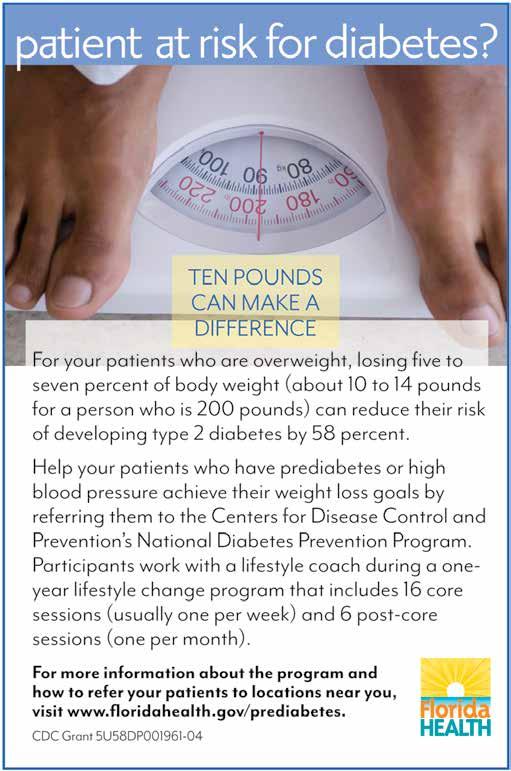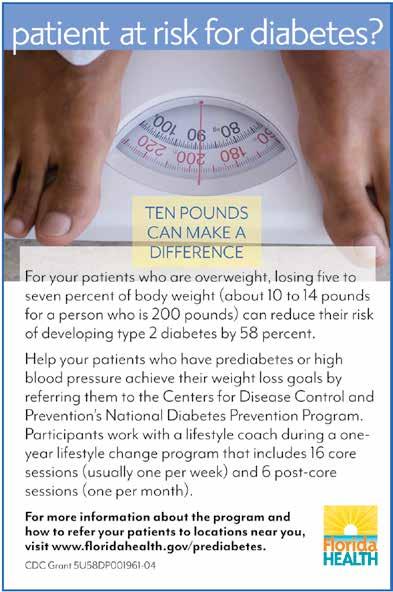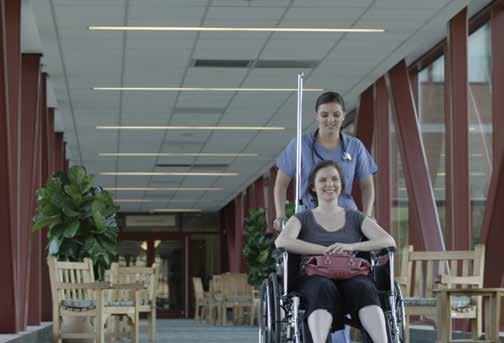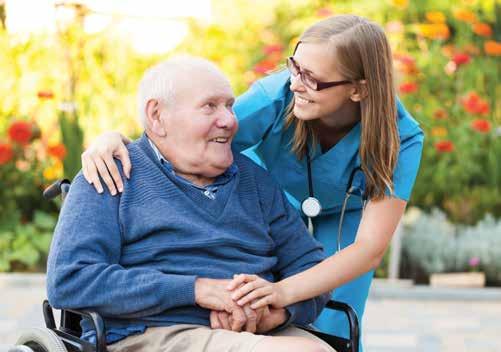






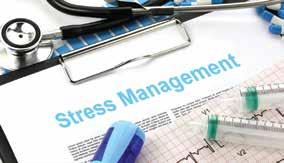









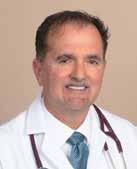
We are experiencing unprecedented challenges in this pandemic. Nurses and other healthcare colleagues have been pushed beyond our capacity to adapt. This pandemic has now been with us for over a year and each day there continues to be new records broken from increasing cases, infection rates, and deaths. Nurses are asked, even expected, to continue to do more and more with less and less. I believe we will get through these difficult times, but I have growing concerns about how we will be as a profession, as individuals, when we do get to the other side. Nurses are experiencing increasing rates of burnout, emotional and physical exhaustion, unresolved grief, depersonalization, and detachment to name a few. In the January 2021 issue of the American Nurse an article on promoting nurse mental health, Judy Davidson with her colleagues reported finding the prevalence of depression, anxiety, and suicide are rising and are higher than the rates found in the general population. In that same article, Bernadette Melnky with her colleagues shared that half of 1,790 nurses surveyed from 19 healthcare systems reported poor mental and physical health with approximately one-third reporting depression. Nurses are in a mental health crisis. We are pushed to the brink in caring for patients and families. Many nurses have shared not being able to provide the type of care they have been called to do, causing them to feel inadequate, defeated and hopeless. Many nurses feel ethically conflicted with not being able to provide the health care they expect. Death for many nurses has become a daily reality. In fact, the grieving process is truncated as they move from one patient to the next. This dysfunctional grieving must be dealt with or it will play out in unhealthy coping and/or poor behavior choices. We all need to find our own ways to take care of our mental health.
I do not consider myself an expert by any means and I do not want to come across as preachy. However, the only thing I have control over is me and how I manage this bleak time in our lives. It is important to take care of yourself. If we cannot care for ourselves how can we possibly care for patients, families, and the ones we love? As a nurse practitioner in long-term care, I have witnessed firsthand many, many losses. Too many recently. As a graduate nurse educator, I have heard students’ stories of the immense burden and losses nurses and society are experiencing each day. I have had to find ways to care for my own mental health. Some days are better than others – and that is ok. I just want to share with you a few ideas that have been working for me to promote my own mental health.
• Walk, Walk, Walk…or other kinds of exercise. I have in the past been a runner and can no longer participate in running activities, but I have found walking to be both a physical healthy outlet, as well as a time for mental recharging. Walking can be done in solitude, groups or with loved ones. It is an excellent way to foster and mirror health promotion with my children. Find ways to get your body moving and if at all possible, do it outside the house. If you are differently abled, find ways to accomplish simple body movements and exercise. Exercise of any kind is truly the ‘Fountain of Youth.’
• Find opportunities to commune with nature. Take a moment in your busy day and just sit with nature. Engage with your surrounding in a non-judgmental stillness. In the stillness we can quiet our busy, chatty minds. Some call this meditation. To me it is a time to be grateful and acknowledge the blessings of life and the ones we love.
• Rediscover old hobbies or develop new ones. Hobbies are also a time to calm the mind and recharge. Don’t make this a task to be done. Think of it as an escape to experience. Hobbies can also be solo or in groups. Find what makes you the most peaceful if not the
Owned and Published by, Florida Nurses Association

I have spent every year that I can clearly remember being involved in public policy, advocacy and social justice. As a child, we did not define it as such, but my parents, particularly my mother was also vigilant about what was happening in politics and government. During elections, we would gather around her with the newspaper to select candidates to vote for. She would explain why she was voting a certain way and this helped to shape my interest in politics. I learned first and foremost that politics and politicians make a difference in my daily life.
As the civil rights movement heated up, we participated by joining peaceful demonstrations in my hometown. I can remember being concerned because I would not necessarily label my mother as “peaceful.” One incident is burned in my memory. There were some high school students marching with signs around their necks with various slogans which were the anthems of the day. One girl standing directly in front of us had a sign around her neck that said, “We shall overcome.” Suddenly, an adolescent teen pushed in front of me and grabbed her sign trying to tear it from her neck, but the string would not break, nor would the poster board tear away. She was choking, clutching at her neck. Suddenly, I was holding my almost newborn baby brother and my mother had grabbed the shirt collar of the boy. He literally ran out of his shirt. My mom checked on the girl who thanked my mom, composed herself and continued on. My mom retrieved my brother and we stood there calmly as two policemen strolled through the crowd as if looking for someone. To my relief, they walked past without paying us the least bit of attention. Though quite nerve-wracking, that experience taught me to be fearless, particularly in the care and protection of others.
Later, in the fifth grade, I was attending school in Jacksonville, and they let the entire school out to attend a parade where President Lyndon Johnson would be a participant. Someone lifted me up on their shoulders so I could see him as he walked by. As an eleven year old, what struck me most was that his ears were large like my father’s, and that like my father, his ears moved every time he took a step. My lesson that day was, politicians are people, just like us. And it made me unafraid in approaching them throughout my life.
As a teenager and in college, I stuffed envelopes for several campaigns and held signs for candidates that my family was supporting. One of my favorite assignments was current events and I usually chose political articles. I didn’t always fully understand what the articles were saying, but I knew that I needed to pay attention to what was going on in the world because important events affect all of us, locally, nationally and internationally.
Before my senior year of high school, I was selected to attend Girl’s State in Tallahassee. This time-honored event sponsored by the American Legion, is where high school juniors are selected to go to the State Capitol and create a “government” the summer before their senior year. We were divided into “towns” and we elected mayors, commissioners, representatives, senators as well as a governor and lieutenant governor and we got to sit
President’s Message continued from page 1
happiest. Getting outside ourselves (again with the chatty mind) can allow us to move past our losses and to find healing of the soul and spirit.
• Connect with family, friends, colleagues, and loved ones. Relationships and connection are so important to a healthy mental state. One positive outcome from this pandemic is the wide discovery and use of virtually meeting with each other. It is good for mental health to get outside yourself. The pandemic is a lonely time for many who are isolated. Be their connection. You will get as much from the connection as they do. You may save someone’s life.
in the seats of the legislators of that day. Traditionally, the governor, who was Reuben Askew at the time came to speak to the group, but he was unavailable, so Representative (Walkin’) Lawton Chiles came to speak to us instead. He spoke about the importance of being involved in government and that everyone was responsible for the future and that they should make their voices heard in our communities, our nation and in the world.
Over the years, I have volunteered in many campaigns and worked as an advocate in various roles in my life. As a nurse, and as a preceptor, I have supported and defended new graduates when they have had difficulty in making the transition from student to professional. What I learned in these instances is that you can make a difference by stepping out of your comfort zone. Additionally, I learned that one person can make a difference in the culture of their environment. By speaking out, other people then felt empowered to share how they wish they would have been able to stand up to the bullies that were destroying their peace in the workplace.
Not all of the lessons I have learned have been positive, but they are still valid and need to be shared. As we have moved forward as an organization, I have seen disunity, a struggle for “credit,” and disagreement based on personal issues create dissension even when working for the same goal. This creates the need to continually defend, maneuver and strategize when we should all be working together. In nursing advocacy, all roads lead to nursing practice and ultimately the patient. This should be our motivation. So my lesson for this is be strong, be focused, but be collegial, even when others aren’t.
My life and professional experience has led me to work in a position in which I can support other nurses in making a difference for their profession. We will not always agree on the pathways we choose to take, we MUST be able to navigate together, communicate effectively, without subterfuge, acrimony and conflict. Slamming another organization or person who may be approaching an issue with a strategy that differs from yours is not effective. If we all want the same thing, why do we care how we get it or who gets it for that matter? And if you see a colleague struggling, stumbling, learning… give them a hand.
The next lesson I will share today is that the accomplishments and advances that nursing has made have been monumental, but while we can always celebrate that, we must never rest from making sure nurses are safe and healthy so that patients can be taken care of. There is no shame in working for a safe and healthy workplace where conditions are BETTER THAN TOLERABLE. We need the help nurses to achieve that goal. The massive numbers of nurses in Florida can unify to create a future we will all be proud of. But you have to care about more than what is happening to you individually on a daily basis. You have to see the bigger picture. You have to join hands, learn the process, and create the energy of change. And finally, the most important lesson is, there is no “they” you can blame. The key to power and change is the “we” and “us” who can make a difference.
Never believe that a few caring people can’t change the world. For, indeed, that’s all who ever have.
– Margaret MeadReprinted from The Florida Nurse – March 2017 in honor of our 2021 Season of Advocacy. Join us today at www.floridanurse.org/join

• Update your skills or learn new skills. Again, virtually meeting has opened up so many opportunities for us. Study a new language (I have not been so successful with this one). Learn about different cultures and practices. This is an opportunity to grow and prepare for the future. Consider advancing your education and if that is too much right now, look into it. The simple act of exploring your opportunities can provide you with a sense of control. Explore opportunities and begin the journey to a renewed you.
• Write or journal your story. I have found over the years that writing is cathartic and allows me to
1235 E. Concord Street, Orlando, FL 32803-5403
P.O. Box 536985, Orlando, FL 32853-6985
Telephone: (407) 896-3261
FAX: (407) 896-9042
E-mail: info@floridanurse.org
Website: http://www.floridanurse.org
Office Hours: 8:30 a.m. to 4:30 p.m., Monday thru Friday
For advertising rates and information, please contact Arthur L. Davis Publishing Agency, Inc., PO Box 216, Cedar Falls, Iowa 50613, (800) 626-4081, sales@aldpub. com. FNA and the Arthur L. Davis Publishing Agency, Inc. reserve the right to reject any advertisement. Responsibility for errors in advertising is limited to corrections in the next issue or refund of price of advertisement.
Acceptance of advertising does not imply endorsement or approval by the Florida Nurses Association of products advertised, the advertisers, or the claims made. Rejection of an advertisement does not imply a product offered for advertising is without merit, or that the manufacturer lacks integrity, or that this association disapproves of the product or its use. FNA and the Arthur L. Davis Publishing Agency, Inc. shall not be held liable for any consequences resulting from purchase or use of an advertiser’s product. Articles appearing in this publication express the opinions of the authors; they do not necessarily reflect views of the staff, board, or membership of FNA or those of the national or local associations.
Published quarterly, February, May, August and November by FNA, a constituent member of the American Nurses Association.
Editor – Kaitlin Scarbary, 1235 E. Concord St., Orlando, FL 32803-5403
Subscription available at $20.00 plus tax, per year. Members of FNA receive the newspaper as a benefit of membership.
COPIES of The Florida Nurse are available on 35mm microfilm, 106mm microfilm, article reprints and issue copies through Bell & Howell, 300 North Zeeb Road, Ann Arbor, Michigan 48106
2019–2021
Officers
George Byron Peraza-Smith, DNP, RN, APRN, GNP, AGPCNP, President Janice Adams, DNP, MPA, RN, President-Elect
Justin Wilkerson, BSN, RN-BC, CHPN, CCRN, Vice President
Victoria Framil-Suarez, DNP, APRN, ANP-BC, Secretary Mavra Kear, PHD, APRN, BC, Treasurer Region Directors
Jill Van Der Like, DNP, MSN, RNC, Northwest Region
Marsha Martin, RN, CCRN, North Central Region
Susie Norman, MSN, RN-BC, Northeast Region
Shirley Hill, BSN, RN, East Central Region Lottie Cuthbertson, MSN-ED, RN, LHRM, FCN, West Central Region
Darlene Edic-Crawford, DNP, APRN, Southeast Region
Sarah Gabua, DNP, RN, CNE, Southwest Region
Marie Etienne, DNP, APRN, FNP, PNP, PLNC, South Region
Director of Recent Graduates
Kathryn Barrows, BSN, RN
LERC Liaison
Mark Welz, RN
FNA Office
Willa Fuller, BSN, RN, Executive Director
John Berry, Jr., Director of Labor Relations & Government Affairs
Kaitlin Scarbary, Associate Director of Programs, Technology, and Membership Marketing
get out of my head (again with the chatty mind) and put my thoughts on paper. Write about your experiences on the hospital units or with your patients. Write about your losses. Write about your feelings of grief. Write about your purpose, your hopes and your dreams. Journaling is not for everyone, but I have found it useful at various times in my life.
These are just suggestions from my experience that have helped me to focus on improving my mental health. Find what allows you to release the mind and promote your mental health. God speed.
Tapping into our Community of Caring
As the COVID-19 Pandemic grew, it became apparent that there were some nurses that were experiencing financial distress due to various factors including being furloughed from jobs, having a spouse who lost a job, having to leave a job to become a caregiver for a family member with COVID-19 or becoming infected themselves. Early on we began a fundraising campaign through our Nurses in Need program to collect funds to be able to provide small grants to nurses experiencing distress. In the month of January, after raising over $6,000 we able to award $500 grants to 13 nurses who met the requirements for our grants. We are truly grateful to those who donated to the fund and made these grants for deserving nurses possible.
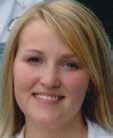
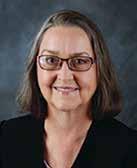
Some of the donations received were given in honor of particular individuals. Susan and Denny Shields from Fort Myers, FL donated $500 in honor of Adrienne Kara Ford, a critical care nurse who died at the age of 36 from COVID. A mother of three, Adrienne had taken time off from work to care for her children when she contracted the virus. Adrienne earned her Associate of Science in Nursing in 2012 from Cox College. For a long stretch she worked as a critical care nurse in Conway, Arkansas, and later as a traveling nurse tending to hospice patients. She was known among her fellow nurses for her infectious, booming laugh and her meticulous way with patients. From 2015 to 2017, she worked on the Medical ICU floor at Cox South tending to complex critically ill patients with multisystem failure. This is the place where she would spend her last three days on Earth. Adrienne had many talents and interests but she will be most remembered for her kind heart. Susan and Denny Shield hope that this gift to a fellow nurse will allow Adrienne’s kind heart to live on.
Trustee Highlight
Randy Jackson is one of the newest Trustees on the Florida Nurses Foundation Board of Trustees. Randy is a long time FNA Member who joined FNA immediately after graduation from Valencia Community College. He has been a perpetual donor to the Foundation through its FNSA Sustaining Membership which is applied directly to Scholarship Funds for students in need. He received his Bachelors and Master’s degrees from University of Central Florida and recently completed his Doctor of Nursing Practice at American Sentinel University. He also serves at the FNA Consultant to the Florida Nursing Students Association as well as on the FNA Nominating Committee. Randy currently serves on the faculty at Seminole State College.
Applicants: Don’t Leave Money on the Table

Each year we have scholarships that are not given because there are no applicants who meet the guidelines. One example is that there are multiple scholarships which are meant to go to nursing students in Volusia County and we rarely have applicants for those scholarships so they go to other areas of the state. There is a specific scholarship for students at UNF and each year we only have one or two applicants. There are others that specify geographic location or nursing specialty. Additionally, applications must be complete and applicants must follow the guidelines. Please refer to our website at https://www.floridanurse.org/page/AvailableGrantsScohlarships to read the descriptions of the available funds. Hopefully our earlier deadlines will help support students with a summer semester.
The Florida Nurses Foundation has over 30 scholarships available for nursing students residing in Florida and currently enrolled in a nationally accredited nursing program. Applicants must have completed at least one semester in their nursing program to qualify. Please review the full guidelines at www.floridanurse.org/ScholarshipsGrants
New Deadline for 2021: All 2021 scholarship applications are due by APRIL 15. The new deadline will allow scholarship funds to be dispersed three months earlier than prior years, providing quicker relief for students potentially impacted by the pandemic.
The Florida Nurses Foundation has several opportunities for Nurse Researchers to receive grants. The purpose of the Florida Nurses Foundation (FNF) Research Grant Program is to encourage the research career development of nurses to advance the profession of nursing.
The principal investigator must be a registered nurse and be licensed to practice nursing in Florida. Applications for the research grant must be for a study (proposed or underway) that has not been completed prior to application deadline. Applications for Research Grants are due JUNE 1. Find the full guidelines and application at www.floridanurse.org/ScholarshipsGrants
Selma Verse | FL LEADERSHIP CIRCLE $1,000
Susan Shields | FL
Patricia Quigley | FL
Rose Rivers | FL
Rose Rivers | FL
Sharon Rogers | FL
Susan Bulfin | FL
Sarah Prim | FL
Kimberly Umstead | FL
Carolyn Coddington | FL
Marie Etienne | FL
Rick Wilson | OK
Hieu Higgins | FL
Richard Feldheim | FL
Margaret Benton | FL
Patrick Corsino | FL
Vicki & Alan Hess | FL
Mercedes Garcia | FL
Stephanie Philips | FL
Clarice Donahue | FL
Kathleen Kazdan | FL
Ellen Geisel | FL Janice Adams | FL
CIRCLE $100
Terrence Stecz | FL
Edward Henricks | PA
Cathie Wallace | FL
Claydell Horne | GA
Karen White Trevino | FL
Eileen Phelps | FL
$50
Irene Pergeorelis | FL
Paddy Faucher | FL
Jeanne Montross | FL
Michelle Taylor | FL
Lashawn Roman | FL
$50
Priscilla Omai | FL
Kathleen Corbett | FL
Susan Clark | FL
Gerry Vergason | FL
Debbie Conner | FL
Cindy Tofthagen | FL
Edward Briggs | FL
Deirdre Krause | FL
Linda Hennig | FL
Linda Hennig | FL
Gloria McSwain |
Randy Jackson | FL
Adan Tejada | AZ
Jean Davis | FL
Flores Sanchez | NY
Dorothy C. Preece | IN
Cathy J. Rubio | NY
Walter P. Newton | OK
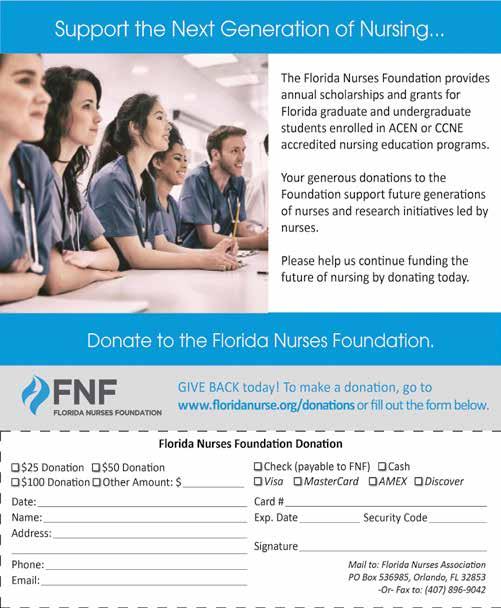

In 1982, after extensive work by the FNA Legislative Committee, Florida Nurses Political Action Committee (FNPAC) was formed. A political action committee (PAC) is a political committee organized for the purpose of raising and donating money to elect and defeat candidates, ballot initiatives and legislation. Each election year, the PAC uses the FNA Legislative Platform to formulate a survey that is sent to political candidates to both educate them and then to extract their views on our most important issues. The PAC is comprised of volunteer members, who serve because of their interest in the profession, in health policy and advocacy.
Our PAC is non-partisan, interviewing candidates based on their responses to our issues of concern and weighing their responses (or lack thereof) to our survey. We also solicit feedback from our members regarding any experiences they have with the candidate or legislator in their local district. PAC trustees may be from any party and we seek to have diversity of representation on the PAC. PAC donations to candidates are capped at $1000 but you may be asked to donate larger amounts to other PACs. In the past, we have largely limited our donations to candidates with some exceptions.
When our members give, we ask that they give individually and make sure they make it known that they are a member of FNA. When you contribute to a campaign, you must inform them of your name, occupation and amount given, even for a small donation such as $5.
We acknowledge donors each year at Membership Assembly and periodically during the year. While each member donates via their dues, we also seek additional donations to shore up our “war chest” for upcoming elections. We are competing with powerhouse PACs and donors so these additional donations are extremely beneficial to our legislative program. Candidates reach out to us for both endorsements and contributions which creates positive relationships for future work together.
Long-time member Janice Hess served on the PAC and suggested that we allow members to add to their $5 contribution, allowing us to grow our funds at a faster rate. Several other members have selected this option. When we have asked members why they belong to the associations, legislative advocacy, along with networking and being informed about the issues is always in the top three reasons.
If you have never considered donating to the PAC, with the mid-term elections coming in 2021. We must be laser focused on selecting candidates that will support nursing issues. Since 2021 is the extended Year of the Nurse and since nursing has garnered so much attention this year due to the pandemic, this is a great time to leverage being The Most Trusted Profession and keeping our concerns in the limelight. Our 2021 Year of Advocacy is in full swing and you can make your contribution by donating today at www. floridanurse.org/SupportFNPAC
FNA has established three new task forces by the recommendation of the 2020 Membership Assembly. A call for volunteers was sent to FNA Members and over 100 applications were received, highlighting the importance of addressing these issues. The task forces will begin work to address each issue and set their objectives in 2021.
Diversity and Inclusion Task Force will develop and promote strategies and best practices within the realms of racial, social, sexual, and gender diversity.
Social Justice as a Public Health Issue Task Force will examine social justice as it relates to public health, and develop a role for nursing in advocating and promoting a safe and healthy community for all citizens.
Disaster and Pandemic Task Force will examine the ongoing COVID-19 pandemic, its effects on public health, and the impact on nurses. The group will also explore ongoing advocacy of the Florida Nurses Association in this and in future pandemics.


Veterans’ Homes
RNs, LPNs, & CNAs needed at all locations
Lake City The Robert H. Jenkins Jr. Veterans’ Domiciliary Home
Daytona Beach The Emory L. Bennett State Veterans’ Nursing Home
Land O’ Lakes The Baldomero Lopez State Veterans’ Nursing Home
Pembroke Pines The Alexander “Sandy” Nininger State Veterans’ Nursing Home
Panama City The Clifford C. Sims State Veterans’ Nursing Home
Port Charlotte The Douglas T. Jacobson State Veterans’ Nursing Home
St. Augustine The Clyde E. Lassen State Veterans’ Nursing Home
Port St. Lucie The Ardie R. Copas State Veterans’ Nursing Home
Orlando Lake Baldwin State Veterans’ Nursing Home
For employment opportunities at the homes, call the FDVA Human Resources Office at (727) 518-3202, Ext. 5579 or visit the People First website at https://jobs.myflorida.com/joblist.html


View full calendar at www.floridanurse.org/events
Health Policy Special Interest Group
Every Second Tuesday | 7:00-8:00pm EST | Zoom Meeting / Conference Call
Ethics Special Interest Group
Every Third Tuesday | 6:00-7:00pm EST | Zoom Meeting / Conference Call
Holistic Nursing Special Interest Group
Every Third Thursday | 7:00-8:00pm EST | Zoom Meeting / Conference Call
Advocacy Days 101 Webinar
March 10 | 6:00-7:00pm EST | Online
2021 FNA Advocacy Days (Virtual)
March 17-18, 2021 | Online
Nominating Committee Webinar—Running for FNA Office
March 30 | 6:00-7:00pm EST | Online
2021 FNA South Region Symposium (Virtual)
June 5, 2021 | Online
2021 FNA Nursing Research & EBP Conference
July 17, 2021 | Online
2021 FNA Membership Assembly
September 23-25, 2021 | Mission Inn, Howie-in-the-Hills
Interested in presenting for FNA? Go to www.floridanurse.org/speak
Members of FNA/ANA will be given priority.
We welcome all nursing students and registered Nurses regardless of membership status to all of our events unless otherwise noted. For registration and more information about FNA events, go to www.floridanurse.org/events
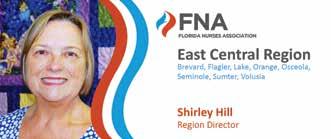
Hello everyone, hope all had a nice and quiet Christmas and New Years! It’s finally 2021! I pray we have a much better year! There are many changes going on and we just have to keep going and I choose to think positive. I know everyone is tired of staying home, using masks and social distancing but this must be done to get through this pandemic. I’ve gotten accustomed to the zoom meetings and I’m glad we have this way to communicate. We do have many courses we can participate in through FNA and ANA. I look forward to when we can congregate and see each other. Please take advantage of the many offerings available.
Keep safe.
Shirley Hill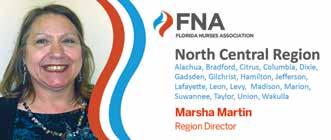
It has been quite a year we have just been through. There have been so many crises and changes we all have had to live through. It is true that the only permanence
is change! We now have to move forward with our new realities.
On January 14, the North Central Region hosted a Legislative Boot Camp with a special guest from the Florida Legislature, Representative Chuck Clemons from House District 21. Our lobbyists led a discussion about how to connect with legislators and advocate for nursing issues as a part of FNA’s Season of Advocacy.
Please contact me with any suggestions, thoughts, concerns you may have concerning the North Central Region and what we can do to move the profession of Nursing and the Region moving forward. I look forward to working with you as we meet and deal with the challenging times in healthcare and Nursing we are encountering.
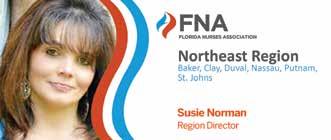
The Northeast Region held its first Legislative Boot Camp of the year on January 21st with special guest, Senator Aaron Bean (District 4). Senator Bean will serve the next two years as president pro tempore of the Florida Senate and currently has several committee assignments including Chair of the Appropriations Subcommittee on Health and Human Services and Vice Chair of the Appropriations Committee. He also plays an active role in training and mentoring newly elected Senators.
In preparation for FNA’s Virtual Advocacy Days (March 17th – 18th), Senator Bean shared his insights with the group on how to make an impact and be remembered
when speaking to your legislator. He provided what he called “the four most powerful words” to easily engage a legislator about your initiatives and what legislators are looking for. Those words are “As you may know.” Key takeaways from Senator Bean are (1) legislators want to hear from constituents and be recognized for the work they are doing, (2) do your homework ahead of time and know what committees your legislators are on, (3) Be nice and professional to staff, and (4) provide your legislator with a one-page summary of your initiatives. We would like to extend our thanks and appreciation to Senator Bean for taking the time to join us.
Following Senator Bean, our lobbyists provided the group with regional and state legislative updates and additional information on attending future boot camps and Advocacy Days including priority committees for FNA in the upcoming sessions. Please feel free to contact me directly at norsusie@aol.com or check the community calendar on the FNA website for more information regarding future regional meetings and activities.
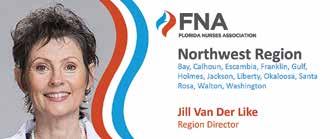
Hello Northwest Region, Happy 2021 to all! I am proud to report that our region started off the year with a Legislative Boot Camp in January. The virtual session brought focus to the work ahead for political advocacy in 2021. I am grateful Regional News continued on page 6

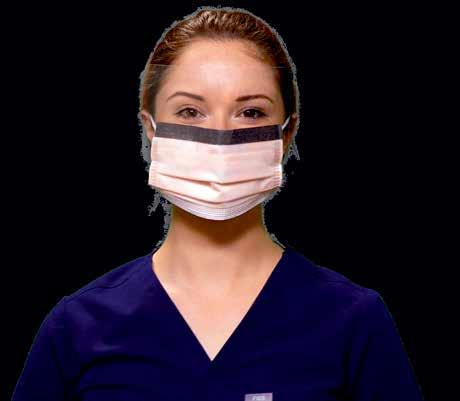
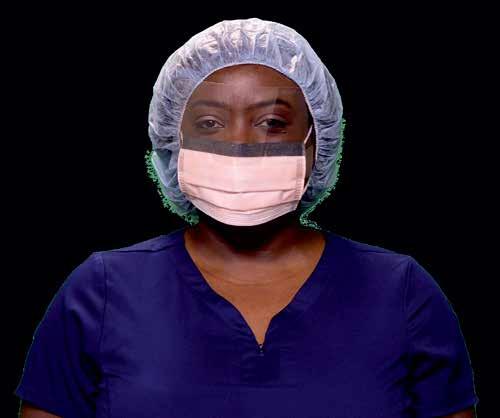
for those who were able to attend, and the wonderful FNA staff that organized an event that engaged us all, while keeping us safe.
The Gallup 2020 Poll revealed that 89% of Americans have a high or very high trust rating of nurses, placing nurses as the most trusted profession for 19 consecutive years. The trust is a privilege, and I encourage you to honor the trust with political awareness and advocacy for our precious healthcare. I am hoping to see many of you at the 2021 FNA Virtual Advocacy Days March 17-18!
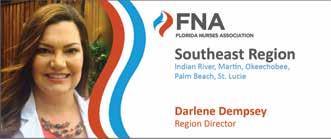
What a year 2020 was. We have had some bad times but we have learned a lot about ourselves, our family, our friends, our workplaces and our communities. Some of what we learned is about great humanity and resilience. Some of what we learned is that we really did not know some people or institutions the way we thought we did. Nurses in the SOUTHEAST Florida region (and elsewhere) did what we always do – we found a way to carry on and provide the care that people need. Hopefully we found a way to do this safely for ourselves and our family – even when not given proper support by our institution. Many healthcare workers are now getting the first wave of vaccines so that they can continue to deliver for their workplace and their family. I’ll always be grateful for how we, as nurses banded together in the beginning of this pandemic and participated in the webinars we held with the FNA and contributed what we were learning and experiencing in real time. Multiple nursing specialties banded together and helped all of us learn.
As 2021 is getting started it’s my hope that we stay unified and work with each other to advocate for the interests of nursing and healthcare needs in our communities and in our State. The Florida Legislature will meet for the 2021 legislative session and they need to hear from nurses. We need to teach each other how to get our views out to the people that make decisions on behalf of the public. There are newly elected members at the local and sate levels and they need to hear from us so that we can make healthcare safer and more equitable – for the patients as well as for us, the nursing staff. Anyone in our Southeast Region that would like to network please e-mail me at darlenearnp@ att.net so that we can come up with some strategies.
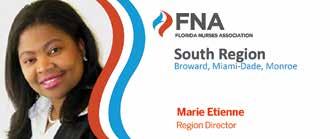
The FNA South Region, representing Broward, MiamiDade, and Monroe counties, has several exciting updates to share with you for the New Year.
We are currently seeking new volunteers to join our Leadership Council. The group meets on the 4th Tuesday of each month at 6pm EST. Responsibilities of group volunteers include planning and coordination of the annual Symposium and Awards Ceremony, the annual Legislative Forum, and other regional events. Members can take on specific roles related to awards, posters, and more. If you are interested, please join our next meeting. Check the FNA community calendar for details.
The South Region held a Legislative Boot Camp on Thursday, February 11 at 6pm EST with special guest Representative Joe Geller. FNA’s lobbying team discussed how to communicate with legislators to advocate for nursing issues. The event was well attended by members of the FNA South Region.
The Annual South Region Symposium and Awards Ceremony will be held virtually on June 5, 2021. The symposium will be looking at the role of the Emergency nurse with Keynote Speaker Carolyn Jones showcasing some of her recent movie In Case of Emergency. We are now accepting submissions for poster abstracts, awards nominations, and scholarships. All deadlines are April 15. More information at www.floridanurse.org
We hope to see you at one our upcoming events! Please be safe and continue to take time for self-care.
In the spirit of caring, FNA South Region Leadership Council
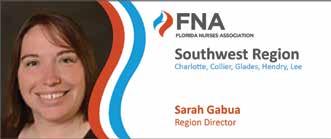
The FNA Southwest Region held a Legislative Boot Camp on February 4, 2021 with a special guest from the Florida Legislature, Representative William Robinson (HD 71). Erin Ballas from FNA’s Lobbying Team, Public Affairs Consultants gave an excellent presentation on how to reach your local legislator to advocate on FNA’s Issues. Several members attending
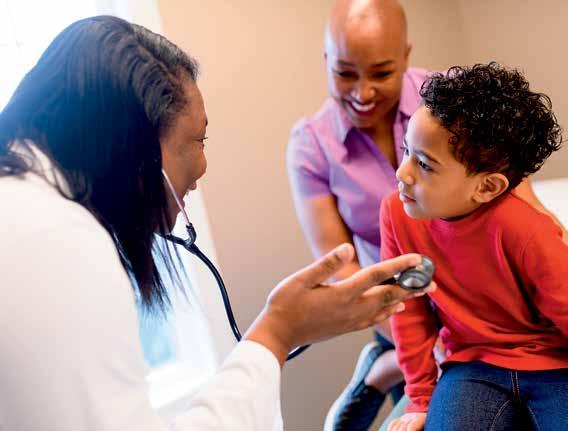
the call expressed their interest in representing FNA on issues relevant to nurses. The FNA is starting a Legislative Action Team for members to connect with their local leaders and advocate for the nursing profession. If you have any ideas for networking or educational programs for the southwest region, please reach out to Kaitlin Scarbary at kscarbary@ floridanurse.org

Happy New Year from the Florida Nurses Association West Central Region. We are looking forward to a prosperous year.
On February 1, 2021 @ 6pm, The FNA West Central region held a Legislative Boot camp with special guest Representative Jackie Toledo. FNA’s lobbying team gave a presentation on how to connect with your legislators and advocate for nursing issues.
In January, I received a call from a local technical school asking me to be the keynote speaker for their pinning ceremony. I agreed to speak to the practical nursing students and on January 8, I spoke on five areas of focus:
1. Caring for patients/clients
2. Role of a nurse
3. Higher education
4. Nursing advocacy and joining a nursing organization
5. Self-care
I continued to thank the nursing students for answering the call to become a nurse.
My passion for our nursing profession combined with education and collaboration from the board and the West Central Region of FNA inspires me. I am inspired to step outside of my comfort zone and share with others the world of nursing.
In December, I was accepted to the Board of Directors for the Pinellas Continuum of Care, part of the Homeless Leadership Alliance. Having nurses serve on boards is an important part of improving the health of communities.
If you are not a member of FNA, we encourage you to join us in having likeminded conversations about nursing. www.floridanurse.org/join
Lottie Cuthbertson, West Central Region Director
Special Interest Groups (SIGs) are made up of FNA members who are interested in a particular facet of nursing or a nursing-related topic. SIGs often meet via conference call to discuss matters related to their group topic. Members brainstorm ideas around particular issues and create actionable work from them such as position statements, educational events, resource books, and more. Some of FNA’s most active SIGs are the Health Policy SIG (HP-SIG), Nursing Ethics SIG, and Nursing Research SIG. One of the newest groups added is the Holistic Nursing SIG. FNA also has SIGs for New Grad Nurses, Nurse Entrepreneurs, and Clinical Nurse Specialists.
Special Interest Groups can be formed when at least five members are interested. The groups will set goals and objectives for their specific focus area and may initiate projects based on those goals. For more information on Special Interest Groups, go to www.floridanurse.org/SpecialInterestGroups. Upcoming SIG meetings can be found on the FNA Community Calendar (www.floridanurse.org/events) by selecting “Special Interest Group Meeting” from the category dropdown menu.
It’s a new year and the Florida Legislature is getting ready for its upcoming session. Beginning on March 2, the Florida Legislature will meet for 60 consecutive days to consider legislation filed by State Representatives and Senators. According to the Florida Constitution, the only action required by the Legislature is to pass a balanced budget.
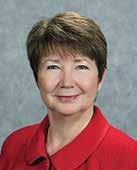
Leading up to the session, the legislators will conduct interim committee meetings. There are new Chairs and committee members. During the interim committee meetings, they will hear from state agencies and departments about issues facing Florida. They will also consider proposed legislation such as HB 111 by Rep. Tyler Sirois and SB 424 by Senator Jeff Brandes relating to Autonomous Practice by an Advanced Practice Registered Nurse.
Two new committees have been formed to address the pandemic. Senator Danny Burgess (R) will Chair the Senate Committee on Pandemic Preparedness and Response and Senator Randolph Bracy (D) will serve as the Vice Chair. On the House side, Rep. Tom Leek (R) will be the Chair of the Pandemics & Public Emergencies Committee. Rep. Bobby Payne (R) will serve as the Vice Chair and Rep. Joseph Casello (D) is the Democratic Ranking Member for the Committee. The House Pandemics & Public Emergencies Committee will focus on issues related to Florida’s emergency management system, including state and local emergency powers and programs. In addition to overseeing Florida’s response to the COVID-19 pandemic, the committee will consider policies intended to prepare for and mitigate future risks confronting the state.
With COVID-19, the legislature has asked no large gatherings in the Capitol during interim committee meetings and session. The Senate is asking people who wish to testify before a committee, go to the Donald L. Tucker Civic Center, where special rooms have been created so that you can speak to the committee. The House is allowing individuals who wish to testify before a committee in the building, but they must sign up in advance for a seat in the room.
FNA is working on a virtual “Advocacy Days” on March 16 & 17. We will have key leaders in the House and Senate talk about their plans for the 2021 session as well as a session on connecting with your legislator. We are even working on a session on how to become a candidate for office so you can learn what it takes to become an election official.
As we move forward in these uncertain times in both healthcare and in the legislature, we know that if we work together we can make a difference in Florida’s future.
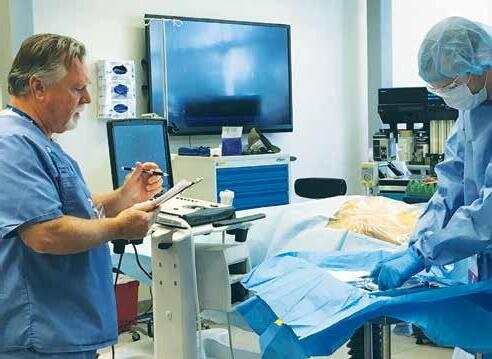


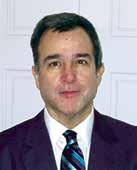 John Berry
John Berry
Well, it’s that time of year again. As new leadership take the reins in the Florida House of Representatives and Senate, so do our continued hopes that our elected officials become educated to the legislative priorities of the Florida Nurses Association. We become advocates because we are passionate about a certain issue or cause that can personally affect us or others we know. There are no finer advocates than nurses when they are fighting for care of their patients. But the fight doesn’t just end there. Nurses
need to take that fight to the halls of the legislature in Tallahassee. This year our meetings will be conducted differently. Those in-person meetings can now be conducted by a phone call, Zoom meeting, letter, or email. Legislators need to hear the personal stories from nurses on their daily advocacy in their health care institutions to ensure that proper funding is provided to their facilities for patient care, for programs, and for their safety and their practice.
I know that as nurses, you are consummate professionals and display the utmost confidence in everything you do when advocating for your patients. But in unfamiliar surroundings, such as when first addressing a legislator, it can make anyone feel a little uneasy. Start out by introducing yourself to the legislator or his/her staff person. If you’re a constituent, make sure that you acknowledge that. We may not feel it at times, but as constituents, our word carries a lot of weight. It’s because we represent a vote, a family’s vote, a friend’s vote, a colleague’s vote and even an acquaintance’s vote. That is how you are viewed to an elected representative. Whether it’s a local, state, or federal representative, he or she knows that you have the power to elect them into office or to vote them out. Tell them where you work, what your job title is, and how long that you’ve worked there. You need to tell them your story, to educate, to make an impact on that legislator so that he or she has the proper information and knows how they should be voting on a particular piece of legislation. Sometimes you might not get to speak with the elected official because they could be in session already that day or
an already scheduled committee meeting. It’s great to speak with your representative but if you can’t, don’t be disappointed. There are plenty of staff that are more versed on the subject matter than your representative is. Even though you won’t be able to speak to them in-person physically, make sure that you thank them for their time and let them know that you can forward them any information that will help them make their decision on how to vote on the points that you’ve presented. Make sure you leave your contact information as well.
March 17th and 18th of 2021 are the Florida Nurses Association’s Advocacy Days. Mark your calendars and sign up to take part if you haven’t already. Don’t leave it up to someone else to make your voice heard.
In a State, a Country, the World, where health care and our health care professionals have been at the forefront for almost a year during this global health crisis, we are definitely at a time that the needs of our patients and nurses’ needs must be met. On the day that I sit here at my desk and write this article, there are approximately 23,202,797 confirmed cases in the United States, as well as 385,913 deaths. The state of Florida has on this day, 1,503,482 confirmed cases and 23,232 deaths. Advocacy for our patients and health care professionals could never be at a more crucial point than it is today. All it takes is a phone call, email, or letter to your legislative representative. Whatever you do, don’t sit on the sidelines waiting for someone else to do it. Please do your part and get involved. Go to FNA’s Legislative page to find out more.
The Orlando VA Healthcare System is seeking innovative, energetic RNs and LPNs for several temporary and permanent openings. We have positions available in our inpatient and outpatient departments, Community Living Center, and Domiciliary.

The Orlando VA hospital is located within Lake Nona - Medical City, a 650-acre health and life sciences park in Orlando, Florida. It is known for it’s education, research, and special care. Located near the Orlando International Airport and home to the Health Sciences Campus of the University of Central Florida, Nemours Children’s Hospital, the University of Florida Academic & Research Center, and USTA National Campus. Lake Nona has top-rated schools and 3 golf courses. Since 40% of Lake Nona’s land is reserved for greenery, hikers, runners, and biking enthusiasts can enjoy the area’s 44-mile trail.
Excellent benefits and generous PTO
26 vacation days/year cumulative for RN’s, 13 days for LPN’s
13 sick days/year cumulative
10 paid holidays
15 military leave days per year
Group health/life insurance
Federal pension
Traditional or Roth retirement
Savings plan (401K)
Credit union
Career development program
Continuing education (CEUs)
Shift differential
Weekend premium pay
Double time for holidays worked
Uniform allowance (select areas)
Tuition assistance available
Nationwide transfer opportunities
Free parking
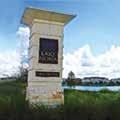
Central Florida’s #1 best-selling community
• Daily residents/commuters: 41,000+
• Median age: 36
• Annual Employees/Visitors: 3.5m
• 80% of household incomes $100,000+
• 60% of household incomes $150,000
• 17% of residents are first time homebuyers
• 95% of residents live in Lake Nona full-time
• 26% of residents live and work in Lake Nona
• 53% of residents have family or friends join them at events in Lake Nona
• 46% of residents have a graduate degree or higher
• 88% have completed a bachelor’s degree or higher
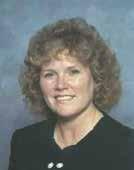
The challenge of responding to the Pandemic and being able to protect our Florida residents, tourists, and wards-of-thestate from the Coronavirus has hopefully taught our political leadership the critical importance of building and maintaining a strong government-operated public health program. Not only do we need strong public health services provided by the Florida Department of Health to test and contact-trace persons exposed to disease (particularly COVID); we need trained public health professionals to provide services to those vulnerable populations in our economically-challenged neighborhoods, our nursing homes, our state institutions/ hospitals and prisons. A fully staffed table-of-organization of Registered Nurses, Nurse Practitioners, Nutritionists, Dentists, Dietitians, Pharmacists and Behavioral Specialists are needed to (1) pro-actively slow the spread of disease through the teaching of healthy habits and the provision of preventive medical maintenance; (2) to prescribe and administer the drugs necessary to counteract the effects of disease once the contagion is contracted; and (3) to administer various vaccines and inoculations for disease prevention. [This will be especially important now that we have a vaccine for COVID – a vaccine which will be administered to all willing Floridians.] Lastly, we need public health protections against all manner of diseases and maladies (some which are yet unidentified) that may someday threaten Florida in epidemic and pandemic proportions. [This is clearly evident based on past experience with outbreaks of diseases such as COVID, AIDS, Bird Flu, Hepatitis, ZIKA, Ebola.]
Unfortunately, during the past several years our public health infrastructure has become so weakened through budget cuts and personnel layoffs that rebuilding the system to the extent needed will require a very focused, concerted effort by the Governor and the Legislature.
Since 2010, Florida’s population has increased by 2.4 million, making it the third largest state in the nation. Tragically, state-funded public health services have decreased. According to an assessment by the Palm Beach Post of state budget data, local health departments spent 41% less per resident in 2019, decreasing from $57 to $34 per resident after inflation. In addition, local health department staffing decreased from 12,422 FTE to 9,125 FTE.
In a new analysis by the Commonwealth Fund, a nonprofit, private foundation, found that Florida’s health system ranks 41st in the nation on investment in the system by budgeting only $19 per resident. Tragically, we have more children without medical care than any other state! Florida ranked 47th for health care access and affordability, while staggering in at 48th ranked position for prevention and treatment.
The Florida Nurses Association/OPEIU Local 713 is the Union which represents the employees within the Professional Health Care Bargaining Unit. As the spokes party for those first responders, we have, on a number of occasions (including every collective bargaining session with DMS and the Agencies wherein FNA membership is employed) warned of the
importance of spending more time, energy and funds to insure that Florida has a competent, capable public health care system.
The time has come to act in an aggressive manner to expand the budget and hire more health care professionals to man the system! We urge our Governor and Legislators to begin rebuilding our public health workforce.
•
•
•
You
We’re
At
Contact


The year 2020 has finally come to an end, but we continue to endure the uncertainties and effects of the COVID-19 pandemic; changes in infection control, nursing practice, and even the safety of our own health and well-being. Truth be told, the beginning of your nursing career can be hard for the first six months to a year and, sometimes even longer. Maybe you are experiencing feelings of incompetence and insecurity. Have you ever been questioned by patients, their family members, or even colleagues, “Do you have any idea what you’re doing?!” It can be such a jab to your self-esteem to be talked down to and personally, I have never found much consolation in being told to fake it until you make it. Have you second guessed yourself and thought, “I’m not smart or good enough for this job”?
If any of these thoughts or emotions sound familiar, there is no shame in the struggle. This is a very common phenomenon called Imposter Syndrome. “It is a collection of feelings of inadequacy that persist despite evident success. ‘Imposters’ suffer from chronic self-doubt and a sense of
intellectual fraudulence that override any feelings of success or external proof of their competence. High achieving, highly successful people often suffer, so imposter syndrome doesn’t equate with low self-esteem or a lack of self-confidence. Some researchers have linked it with perfectionism.” (John, 2019) Be reassured that this is felt by many new nurses and it is important to take consistent actions every day to remember you are a good nurse and you can do this!
Strategies can help minimize Imposter Syndrome: Reframe your thoughts. Reframe failure as a learning opportunity. Find out the lessons and use them constructively in the future.
Keep a list of your accomplishments. Reflect on how you’ve made a difference in this world. Focus on the value you give. Focus on the people you serve.
Be kind to yourself. Remember that you are entitled to make small mistakes occasionally and forgive yourself. Don’t forget to reward yourself for getting the big things right. Don’t forget the process takes time.
Seek Help. Talking to managers, mentors and preceptors can offer support and encourage realistic self-views. (Corkindale, 2008)
References Corkindale, G. (2008, May 7). Overcoming Imposter Syndrome. Harvard Business Review. https://hbr.org/2008/05/ overcoming-imposter-syndrome
John, S. (2019) Imposter syndrome: Why Some of Us Doubt Our Competence. Nursing Times; 115: 2, 23-24.

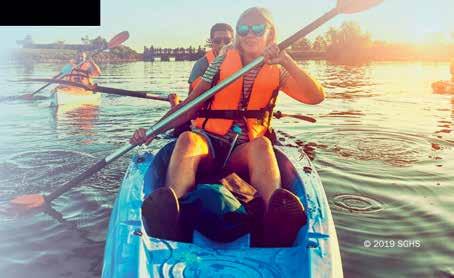
2021 FNA Membership Assembly Important Dates
Mar 31 Speaker Proposals Due
Apr 16 Initial Deadline for Election Nomination Forms
May 3 Bylaws Changes Submission Deadline
June 1 Awards Nomination Deadline
July 16 Final Nominations Deadline
July 30 Poster Abstract Submissions Due
Aug 1 Reference Proposals Due
Aug 1-15 FNA Election Voting
Sept 23-25 FNA Membership Assembly, Howie-in-the-Hills, FL
Member Organizations of the National Commission to Address Racism in Nursing
American Academy of Nursing
Asian American/Pacific Islander Nurses Association
American Association for Men in Nursing Chi Eta Phi
American Association of Colleges of Nursing Minority Fellowship Program at the American Nurses Association
American Nurses Credentialing Center
American Nurses Foundation
National Alaska/Native American Indian Nurses Association
National Association of Licensed Practical Nurses
American Organization of Nursing Leadership National League for Nursing
ANA Eastern Region of Constituent and State Nurses Associations
ANA Midwestern Region of Constituent and State Nurses Associations
Organization for Associate Degree Nursing
Philippine Nurses Association of America
ANA South Eastern Region of Constituent and State Nurses Associations The Minority Nurse
ANA Western Region of Constituent and State Nurses Associations
SILVER SPRING, MD – Leading nursing organizations convened for the inaugural meeting to launch the National Commission to Address Racism in Nursing (the Commission). The Commission will examine the issue of racism within nursing nationwide and describe the impact on nurses, patients, communities, and health care systems to motivate all nurses to confront systemic racism.
racism and to develop an action-oriented approach across the spectrum of education, practice, policy, and research.
“Addressing the Challenges of Healthcare Professional Monitoring” IPN/FNA Annual Conference June 25, 2021 | Location: Virtual
Registration is currently open until May 1, 2021 To Register for the IPN/FNA Annual Conference go to www.ipnfl.org click on Events and Trainings. Save The Date
SPEAKERS
Lantie Jorandby, MD, CMO
Joe Jones, Ph.D., NRCC-TC, COO, VP
Anthony Jusevitch, Investigation Manager, MQA/DOH, Shannon Opie, DNP, APRN, ANP-BC, CARN-AP, CEO and Myrtle Greene, Ph.D., LMHC, CAP, ICADC, COO
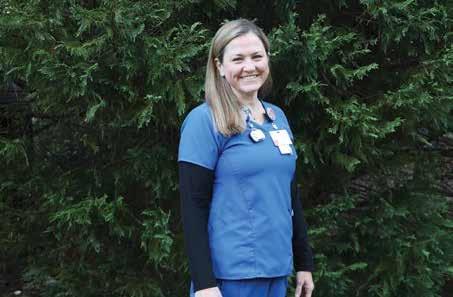
The Commission is being led by the American Nurses Association (ANA), National Black Nurses Association (NBNA), National Coalition of Ethnic Minority Nurse Associations (NCEMNA), and National Association of Hispanic Nurses (NAHN). The Commission members and organizations represent a broad continuum of nursing practice, ethnically diverse groups, and regions across the country: The Commission aims to lead a national discussion by exploring the experiences of nurses of color to understand the impact of systemic




“Racist attitudes, bias, stereotypes, and behaviors against nurses and nursing students of color have absolutely no place in nursing and are a direct contradiction to the core values and the Code of Ethics for Nurses,” said American Nurses Association President Ernest J. Grant, PhD, RN, FAAN. “We know that the issue of racism in nursing is a persistent stain on our profession that directly impacts the quality of care for the patients and communities that we serve. Through this important and long overdue work, we can truly begin to describe and to understand what racism looks like within nursing as a starting point towards progress to meaningful changes. I am confident that this Commission is the right group to do this because of the diverse perspectives and – most importantly – the lived experiences that we all bring to the table.”
National Black Nurses Association President and CEO Martha A. Dawson, DNP, RN, FACHE stated that the nursing profession is like larger society when it comes to injustices.
“The profession of nursing has a long history of institutional inequities, classism, and racism as evidenced by the low percentage of non-White nurses and less than 1% of the deans and chief nursing officers coming from diverse backgrounds. As prolific researchers and writers, nurses discuss diversity, healthy work environments, anti-bullying, interprofessional collaboration, patient-centered care,

and inclusivity, but where are the scope and standards of practice against racism,” said National Black Nurses Association President and CEO Martha A. Dawson, DNP, RN, FACHE. “Change starts with leadership and too many of our nurse leaders are uncomfortable with open dialogue about racism, sexism, and classism which means they have to examine their own practices and commit to healing and leading differently. For too long, our profession has treated racism as a small, localized abnormality when it is an open wound. Nurses know that a sterile bandage will not remove infection. In 2020, the Year of the Nurse, COVID-19 pandemic, social injustices and unrest, and the recent assault on the U.S. Capitol all point to one defining moment and that is change must come. Nursing has the opportunity to look in, lean in, and change our profession. It is not enough to be the most “trusted”; we must become true healers and heal ourselves. This National Commission is committed to real change.”
The National Coalition of Ethnic Minority Nurse Associations President Debra A. Toney, PhD, RN, FAAN, said her organization is the unified nursing voice for ethnic minority nurses across the globe.
“We have observed our own health care professionals and frontline nurses bravely battle COVID-19 for months. Many have lost their lives and others continue to risk their health. Now the exponential effects of racist behavior as expressed by people who are supposed to protect lives, and allow for the enjoyment of a democratic society, have rattled the very foundation of a humane society,” said President of NCEMNA Debra A. Toney, PhD, RN, FAAN. “Our country is in a state of turmoil and an unending crisis that contributes to our long term physical and mental health. Immigrants are detained and their children kidnapped, Asian Americans are attacked and blamed for the coronavirus, Native American women are kidnapped or murdered and their perpetrators are
never brought to justice, and people of color are not protected by the laws of this land. As nurses, we call on all health care professionals to declare a state of public health emergency to address these social ills and move this country toward true equality. NCEMNA stands in solidarity with those seeking justice, equity, and peace for all people. As nurses, we promote the celebration of diversity, understanding, compassion, and equality for all. We challenge the nursing profession to make changes at all levels in education, practice, research, and policy to break down structural racism and discrimination.”
“Racism within nursing has left lasting impacts on generations of nurses and continues to manifest as structural, institutional, systemic, and interpersonal racism in nursing and our society,” said National Association of Hispanic Nurses Policy and Advocacy Committee Member Daniela Vargas, MSN, MPH, MA-Bioethics, RN, PHN. “The nursing profession for decades has attempted to launch and support efforts around “diversity,” “equity,” and “inclusion,” but these initiatives make slow progress and do not specifically address the racism and racist policies that are steeped in the nursing profession. This inaction directly affects nurses of color, primarily Black, Brown, and Indigenous nurses and creates barriers for entering, practicing, and pursuing leadership and research roles within the nursing profession. In addition, this Commission must address various forms of how racism manifests including colorism, microaggressions, white supremacy or white pathology, white dominant culture, and white privilege as well as how racism directly reveals itself as anti-Black and anti-Indigenous within all ethnic groups. There must be a centering of the lived experiences of nurses of color, especially Black, Brown, and Indigenous nurses, who historically have not had the opportunity to have their voices or lived experiences around racism acknowledged and affirmed. With 2020 and 2021 being the Year of the Nurse and Midwife,
we must hold our profession accountable for its role in racism and racist policies to purposefully work towards educating nurses to be antiracist and promote antiracist policies within nursing.”
Racism is a public health crisis that impacts a person’s mental, spiritual, and physical health as well as overall quality of life. Racism in the nursing profession does not align with The Code of Ethics for Nurses with Interpretive Statements, which obligates all nurses to be allies and to advocate for and speak up against racism, discrimination, and injustice. Nurses of color are often subjected to unfair structural and systemic workplace practices, processes inherent in many health care systems, hospitals, and care settings that must be identified, addressed, and eradicated. In addition to longstanding experiences with racist attitudes and behaviors in the workplace, nurses of color are not exempt from the longstanding disparities and inequities in health care or feeling the brunt of the persistent COVID-19 pandemic. A survey of more than 10,000 nurses conducted in July of 2020 by the American Nurses Foundation, found that Black and Hispanic/Latino nurses were more likely to be in roles providing direct care to COVID-19 patients than White nurses (58% and 63% vs. 49%), and twice as likely to have been diagnosed with COVID-19 (10% and 11% vs. 5%).
The Commission will meet monthly to explore and understand the issues of systemic racism within nursing through varied insights and perspectives to include subject matter experts and scholars on the issue. Later this year, the Commission will host a virtual summit focused on activism and publish findings and a set of priority recommendations to address racism in nursing.
FNA Executive Director Willa Fuller represents the Southeast States on the Commission

As of December 9, 2020, there were over 1,200 APRNs who had been approved for autonomous practice in the State of Florida.
In order to apply for registration as an autonomous APRN, a practitioner must have completed:

(1) at least 3,000 clinical practice hours under the supervision of an allopathic or osteopathic physician within the past five years. These hours may include clinical instructional hours. (See Section 464.0123(1)(c) F.S. for complete requirements);
(2) Three graduate-level semester hours, or the equivalent, in differential diagnosis and three graduate-level semester hours, or the equivalent, in pharmacology completed within the past five years; and
(3) not been subject to disciplinary action as specified in Section 456.072 F.S. or Section 464.018 F.S., or any similar disciplinary action in any state or jurisdiction within the past five years.
Equivalency for the required semester hours is being defined by Board rule. Further information can be found
at https://floridasnursing.gov/nursing-faqs/advancedpractice-registered-nurse-aprn/
The Board continues to work towards adopting a definition of “primary care practice” by rule. The definition “Includes physical and mental health promotion, assessment, evaluation, disease prevention, health maintenance, counseling, patient education, diagnosis and treatment of acute and chronic illnesses, inclusive of behavioral and mental health conditions” was proposed and approved by the Board on December 4, 2020. This definition would be read in conjunction with Section 464.0123(3), Florida Statutes.
The Council on APRN Autonomous Practice held its second meeting on November 19, 2020. The recommendation to the Board of the definition of “standards of practice” is “Advanced practice registered nurses who are registered pursuant to Section 464.0123, F.S., shall engage in autonomous practice only in a manner that meets the General Standard of Practice. The General Standard of Practice shall be that standard of practice, care, skill, and treatment which, in light of all relevant surrounding circumstances, is recognized as acceptable and appropriate by reasonably prudent similarly situated health care providers.” This definition was approved by the Board on December 4, 2020, subject to adoption by rule.
We will update our website as the rule promulgation process continues.
Updates to issues related to autonomous practice are posted at this website link - https://floridasnursing.gov/ hb-607-passes-legislature-impact-to-rns-cnas-and-aprns/
 Nicole Benson, Program Operations Administrator
Nicole Benson, Program Operations Administrator
The April 30, 2021 renewal is now open for 151,563 Florida Registered Nurses and 18,818 Advanced Practice Registered Nurses. As we approach the end of April, there will be an increase in calls and emails to the Department requesting assistance, so plan to beat the crowds and get your renewal completed today!
There are three easy steps to renewing your license. Start by completing and reporting your continuing education units. Providers may not be as speedy as you would like them to be in reporting your credits but you can log into your CE Broker account at www.cebroker. com and self-report your hours if it has not been done for you. The information you need to enter into the system will be located on your completion certificate given to you at the end of your course.
CEU requirements for Registered Nurses can be found at https://floridasnursing.gov/renewals/ registered-nurse-rn/
CEU requirements for Advanced Practice Registered Nurses can be found at https://floridasnursing.gov/ renewals/advanced-practice-registered-nurse/ CEU requirements for Licensed Practical Nurses can be found at https://floridasnursing.gov/renewals/ licensed-practical-nurse/
Advanced Practice Nurses now have full licensure instead of certification and this may mean that you have a RN and an APRN license to renew. You do not need to double up on the CEU completed, just be sure to report each course under both license numbers to receive credit.
After you have completed your CE, log into your account at https://mqaonline.doh.state.fl.us/datamart/ login.do to start the renewal process. You will be directed to complete a workforce survey for the Florida Center for Nursing. Please take the time to complete this survey, the information is invaluable to future planning and development of the nursing profession within our State.
Once the survey is complete you will be directed back to your renewal where you will answer a few questions and update any changes to your mailing and practice locations. This will lead you right to the last step, which is paying your fees. The system syncs every hour, so your renewal will not be reflected until the next hourly sync. If you have both a RN and an APRN license, be aware that you will need to complete the renewal for both licenses, with the change in legislation this year, these are no longer combined. When your renewal is complete, you will be able to verify by looking your license number up at https://appsmqa.doh.state.fl.us/ MQASearchServices/HealthCareProviders and a new hard copy of your license will be mailed to your mailing address within 7-10 business days. For more detailed information please click on “Renewals” at the top of the screen on the blue bar at https://floridasnursing.gov/ renewals/

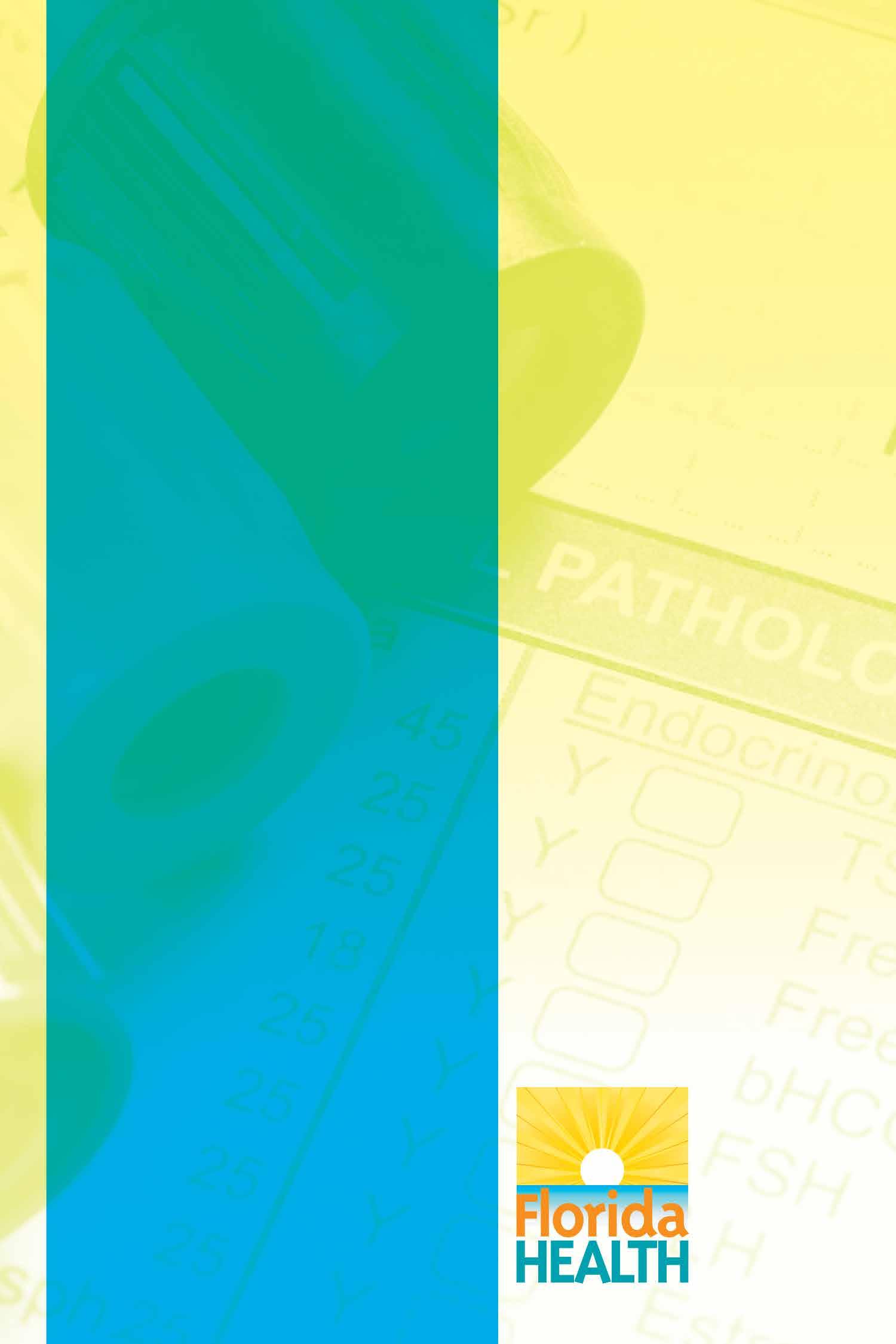


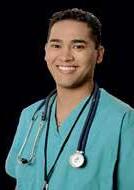
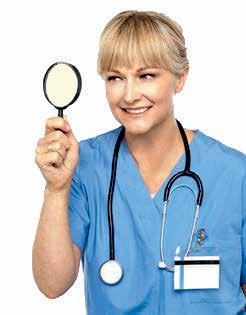
2021 is an Election Year for FNA. Now is the time to start setting those goals and taking action to consider running for office. All officers are elected for a two-year term. Officers will be sworn in at the FNA Membership Assembly on September 25, 2021. FNA members may self-nominate. The following offices are up for election:
Executive Committee of the Board
• President-Elect: Acts as an assistant to the President and assumes the duties of the President in his/her absence.
• Vice President: Chairperson of the FNA Membership Committee and assumes the duties of the President in the absence of the President and President-Elect.
• Secretary: Records the minutes of the FNA Board of Directors (BOD), Executive Committee, and Advisory Committee meetings.
• Treasurer: Serves as Chair on the Finance Committee, reports to the BOD the financial standing of FNA, and makes a full report to FNA at each Membership Assembly.



Region Directors (8): Serve as liaisons between the FNA Board of Directors and the Regions. Assist in coordinating FNA regional events. Each region has a director. To view a breakdown of the FNA regions, go to www.floridanurse.org/page/regions Director of Recent Graduates: Serves as the chair of the New Graduate Special Interest Groups. Assists in coordinating programs and events targeted towards recent nurse graduates.
Nominating Committee (5): It is the responsibility of the Nominating Committee to oversee the election process and formulate the ballot in conformity with the FNA Bylaws. No region shall be entitled to more than one member to serve on this committee. No member shall serve concurrently on the Nominating Committee and on the BODs.
If you are an FNA member and undecided about running, you are encouraged to connect with the people who are currently on the board who can tell you about their experience. Participating in an official capacity allows you to contribute your voice to the nursing profession and adds to your leadership experience. You can contact a board member by emailing info@floridanurse.org. Nominations will open in March 2021 with a deadline of April 16, 2021. Nomination forms will be sent via email to FNA members and are available for download at www.floridanurse.org/page/election


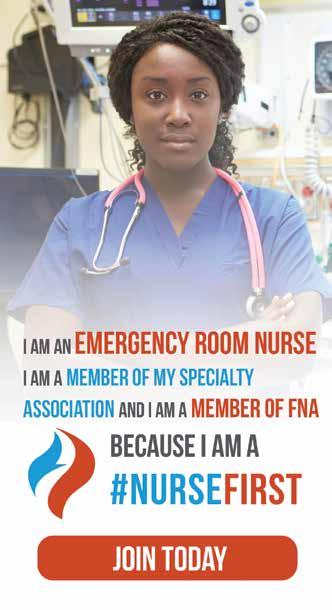


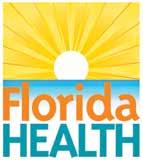
Nurses are on the front line dealing with the stress of COVID-19. Everyday nurses fail to recognize the signs and symptoms of stress and how it is impacting them. Webster dictionary defines stress as, “A state of mental or emotional strain or tension resulting from adverse or very demanding circumstances.”
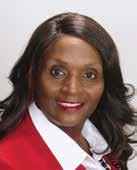
As nurses continue to dedicate themselves to caring for patients during a pandemic, the impact of stress should be considered. It is now that nurses should stop and recognize how the stress of the COVID-19 pandemic is impacting them and use strategies to mitigate the potential for stress related health issues later. There is little scholarly data and resources available that address the stress that nurses are encountering during the coronavirus pandemic. However, every effort should be taken at this time to provide resources

to nurses proactively. Waiting on the data on how stress is affecting our frontline nurses will prove to be too late. It is important to recognize signs of stress as early as possible and address them appropriately. The Mayo Clinic references the following as signs and symptoms of stress:
• Feeling overwhelmed
• Lack of appetite
• Over-eating
• Unusually short tempered
• Low energy
• Crying easily
• Substance abuse
• Headache
• Chest pain
Nurses recognizing stress in themselves and others should prompt an intervention to effectively manage stress. A 2018 article from Healthline gives resources for managing stress. Six of the most frequently used strategies for managing stress is exercise, reduce caffeine intake, journaling, talk to someone, decrease media and social media exposure, and meditation.
1. Exercise
Exercise is a one of the most important things you can do to combat stress. Take a brisk 20-minute walk or add cardio to your exercise routine.
2. Reduce your caffeine intake
Caffeine is a stimulant and high dose from consuming energy drinks, coffee, and chocolate can increase anxiety.
3. Journaling
Journaling can relieve stress by allowing you to focus on gratitude and release tension related to stress.
4.Talk to someone
Do not hesitate to talk to someone about your feelings. Find a co-worker, a family member, someone in Employee Assistance on your job, or a friend to talk to. Social or professional support can be beneficial if needed.
5. Decrease media and social media exposure
Too much exposure to the negative content in the news and on social media can unintentionally cause a stress response. Limit the time spent watching television and on social media.
6. Meditation
Take a five minute deep breathing exercise break where you can focus on inhaling and exhaling can be very soothing and can be done conveniently in any location.
Take advantage of a few of these strategies to help navigate a stressful day. More importantly, recognize when you absolutely need a break and some time to actively utilize the stress management strategies provided. As you continue to be a vital part of caring for patients in a pandemic, take the time to recognize and effectively manage stress related issues. It is always important to know your limits and seek professional help when needed.
Dr. Valerie D. Campbell, Ph.D., RN-BC is a new member of the Florida Nurses Association. Dr. Campbell relocated to Florida from Georgia in 2019 and works full-time in nursing leadership in the healthcare industry. For
Qualifications to teach diploma and degree programs include:
• Current RN license in Florida
• BSN (Diploma Program), MSN (Degree Program) 3-4 years of recent clinical experience
• Meet all state Board of Nursing qualifications
We offer: Medical/dental/vision, 401K retirement plan, paid holidays, vacation, and education reimbursement for full-time and part-time employees. To apply visit https://careers.concorde.edu/
Apply with Concorde today! Train our future skilled Nurses.

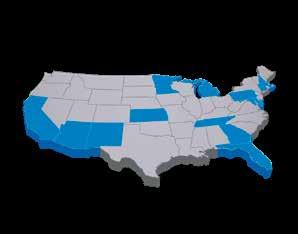


SUMMER CAMP POSITIONS: • RN • LPN
If you are a qualified nurse who enjoys working with kids, consider a summer at Songadeewin of Keewaydin for girls or Keewaydin Dunmore for boys on beautiful Lake Dunmore in the heart of the Green Mountains of Vermont. Newly renovated Health Centers and private areas for Nurses. Keewaydin’s website is www.keewaydin.org. Contact Ellen Flight at (802) 352-9860 or by email at ellen@keewaydin.org
situated in the beautiful Pocono Mountains, PA seeks experienced, energetic Registered Nurse or Nurse Practitioner to join our camp family for full time, seasonal position working as part of our professional health center team. Full time physician in residence. June 18th to August 15th, 2021 (shorter sessions also available)
Must have strong nursing skills, caring demeanor, patience and experience working with children.
Competitive salary, private room & board, and travel stipend
For more information please send resume to staff@cecbr.com or call us at 631-329-3239
We look forward to hearing from you www.cecbr.com Camp



An experienced nurse executive who has a demonstrated history of working hospital and Healthcare Industry with a passion for bioethics and the impact on the workforce. He has recently completed extensive research on moral distress in critical care as part of course work for his Doctor of Nursing Practice degree.
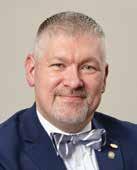
COVID-19 has changed the health care landscape drastically. Moreover, the pandemic has intensified the level of stress, frustrations, and fear for all including patients, their families, and the health care workforce. This escalation in anxiety has only compounded the risk of violence on nurses. This is not a new phenomenon. Health care violence has been recognized as a significant issue by many professional organizations. Regrettably, this type of violence toward nurses is not just perpetrated by patients and their loved ones. Some violence occurs peer on peer. These occurrences are alarming since nursing is a profession perceived to involve the provision of compassionate care and the most trusted profession.
According to The National Institute of Occupational Safety and Health, there are four types of violence nurses could experience in the work environment. Criminal intent is when the perpetrator has no relationship with the victim, and the violence is carried out in conjunction with a crime. The most common health care environmentbased assault is Customer/client. This act of violence is when the perpetrator is a member of the public whom the nurse is interacting during his/her regular duties. Another type of violence is personal relationship. In these incidents, the victim has been targeted because of an existing exterior relationship with the perpetrator, with the violence taking place in the workplace. Finally, the act of violence most pervasive and concerning is worker-on-worker violence. This type of violence is frequently perceived as bullying, incivility, or horizonal/lateral violence. This act is when the perpetrator and victim work together. This altercation does not have to be towards a peer in the same role or at the same level. This violence is not always in the form of physical violence.

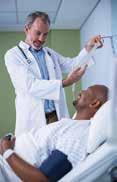
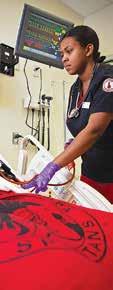
These damaging behaviors in healthcare especially with nurses have been well documented in Literature (Pfeifer & Vessey, 2017; Roberts, 2015; Sidhu & Park, 2018; Wilson, 2016). Often one may hear reference to “nurses eating their young.” These behaviors may manifest in several different ways. Bullying is the repeated, unwanted harmful actions intended to humiliate, offend, and cause distress in the recipient” (American Nurses Association, 2015, p. 3). Incivility is well-defined as “disrespectful, rude, or inconsiderate conduct” (AORN, 2015, p. 3). Horizonal violence (HV) in nursing is described as “hostile, aggressive, and harmful behavior by a nurse or a group of nurses toward a co-worker or group of nurses via attitudes, actions, words, and/or other behaviors” (Taylor, 2016, p. 1). Lateral violence describes behaviors intended to demean, undermine and/or belittle a targeted individual working at the same professional level (Sanner-Steihr & Ward-Smith, 2017). These behaviors may be acted out in a covert manner making it more difficult to address unless leaders are mindful.
Horizonal/lateral violence continues to have a substantial bearing on the health and wellbeing of the nursing profession and health care system. According to Murray (2008), this type of violence by nurses cost an estimated $4 billion dollars each year in lost time, productivity, and turnover of trained staff. The cost on health care only scratches the surface of the detrimental influence these behaviors have on the workforce. Sauer (2012) identified this type of violence results in staff leaving their jobs and the profession. Other consequences of those victimized nurses can lead to the development of psychosomatic symptoms such as headaches, eating disorders, sleep disturbances, recurrent nightmares, and the onset of chronic physical conditions (Murray, 2009).
The first steps to address this pervasive crisis is to begin to recognize and admit there is an issue. This requires ongoing education and other measures to identify and reduce vulnerabilities so everyone can be a part of addressing the issue. Organizations must empower individuals to speak up and report when these behaviors are witnessed. This requires employers to build a community of trust within the organizations. Employers must establish a zero-tolerance policy regarding incivility and bullying wherein all cases of incivility and bullying are treated in the same manner, regardless of who is involved. According to U.S. Department of Labor (1970), Employers are legally obligated to afford a safe and healthy workplace.


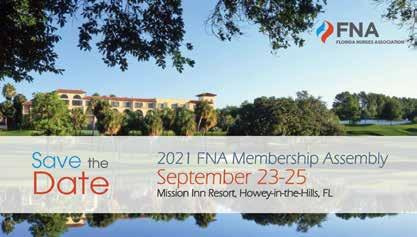
7th Annual Nursing Research and Evidence-Based Practice Conference
The FNA Board of Directors is committed to supporting and showcasing colleagues conducting nursing research. You are invited to submit abstracts for the 7th Annual Nursing Research and Evidence-Based Practice Conference scheduled for Saturday, July 17, 2021. The purpose of this conference is to promote communication and dissemination of nursing research and performance improvement projects that are being conducted in diverse academic, clinical, and/or community settings throughout Florida. Abstracts will be peer-reviewed by members of the FNA Nursing Research Special Interest Group and will be considered for both poster and podium presentation. Presentations may be conducted virtually to ensure safety of participants. Updates will be provided as more information is available.
Submissions are due by Monday, May 10
You will be notified of abstract acceptance by June 4 Guidelines for submission can be found at www.floridanurse.org/ResearchConference
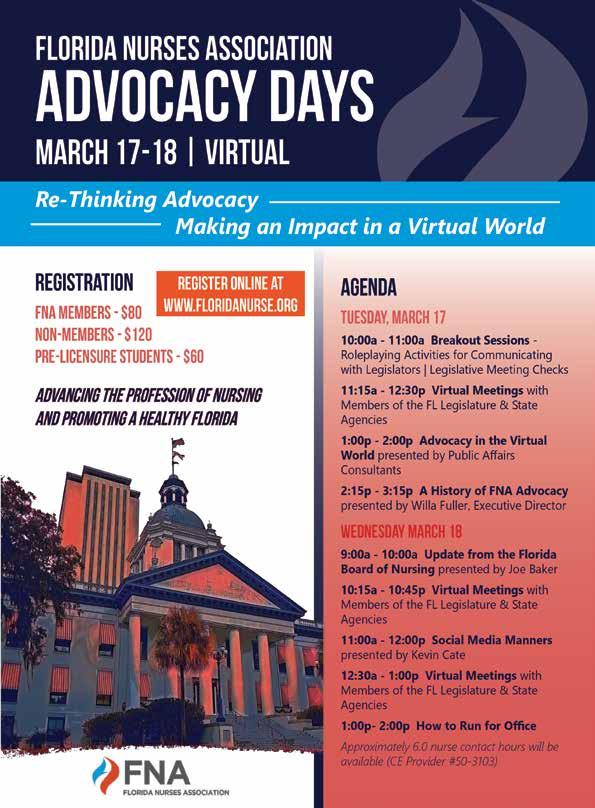

Knowing who your elected officials are is an important part of advocating for yourself, your community, and your profession. Many people do not realize how many different kinds of elected officials they have representing them at various levels of government. With the recent elections it is possible that you have had a change in who your representatives are. Knowing who to reach out to for which issues that affect you and your community is one way to be sure your voice is heard and responded to. Elected officials do want to hear from their constituents and we should be sure they each know who a NURSE in their district to call upon when information is needed.
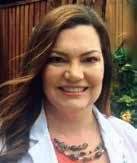
Go to this site for help finding your elected officials:https:// www.myfloridahouse.gov/Sections/Representatives/myrepresentative.aspx
This website for the Florida House of Representatives will help you identify exactly who represents you at different levels in the State of Florida and how to contact them. Once you put in your home address the site will tell you your Florida House Representative and District number; Your Florida Senate and District number, Your U.S. House of Representative member and District Number. All in Florida have the same two U.S. Senators: Sen. Rick Scott and Sen. Marco Rubio. In addition to knowing who your Federal and State level elected representatives are, it is important to keep up to date on who represents you at your County level, and municipal (town or city level). There are 67 Counties in Florida and we will each
Example of a Personal Elected Officials Contact List
My FL House and Senate Districts
Florida House District 88 – Representative Omari Hardy
District Office
1755 Tiffany Drive East Mangonia Park, FL 33407-3224
Phone: (561) 840-0177
Florida Senate
District 30 – Senator Bobby Powell
Most of the advocacy work that FNA does is with your Florida House and Senate members.
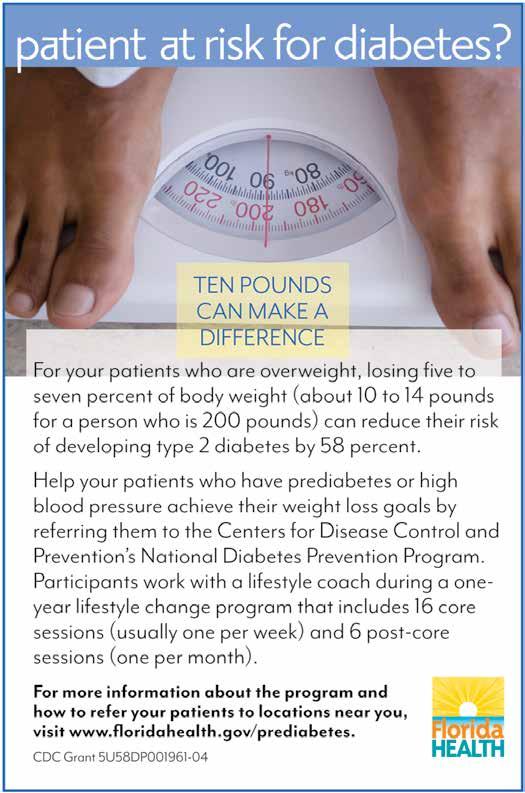
have representation at the county level. You can google your County Commission and they will have an area to put in your address and find your own representative. Also, most towns will have this sort of option. There are also local elected officials that affect you such as your School Board Member, local Special Taxing Districts – for example Water Management District or Mosquito Control District members.
Keeping a type list of your own Representatives where you can access it later to make contacts is helpful.
Another way to figure out who your elected Representatives are is to look at your Voter Registration Card – this will have each Representative type written down with the District/Precinct/Commissioner number. Looking at your Property Tax bill will also help you to see what you are paying for and cause you to want to know who your representatives for each of those institutions that you contribute tax funds to.
Lastly, Google your County’s Supervisor of Elections Website and make sure your Voter Registration Card has accurate information such as address and party affiliation. Remember in Florida you cannot vote in a primary unless you are registered in a party. NPA = No Party affiliation and with this affiliation you cannot vote in any races for individual primary elections. Your Supervisor of Elections website can help you figure out where and when to vote, what elections are upcoming and you can request Vote by Mail ballots from that site ahead of any elections.
Knowing who represents you at every level of our government is something every nurse should know. Make your voice heard by those who need your input as an informed citizen.







For more information about the program and how to refer your patients to locations near you, visit www.floridahealth.gov/prediabetes. CDC Grnnt 5U58DP001961-04 your patient’s prescription for empowerment
For your patients who are overweight, losing five to seven percent of body weight (about 10 to 14 pounds for a person who is 200 pounds) can reduce their risk of developing type 2 diabetes by 58 percent.
Help your patients who have prediabetes or high blood pressure achieve their weight loss goals by referring them to the Centers for Disease Control and Prevention’s National Diabetes Prevention Program. Participants work with a lifestyle coach during a oneprogram that includes 16 core sessions (usually one per week) and 6 post-core sessions (one per month).
